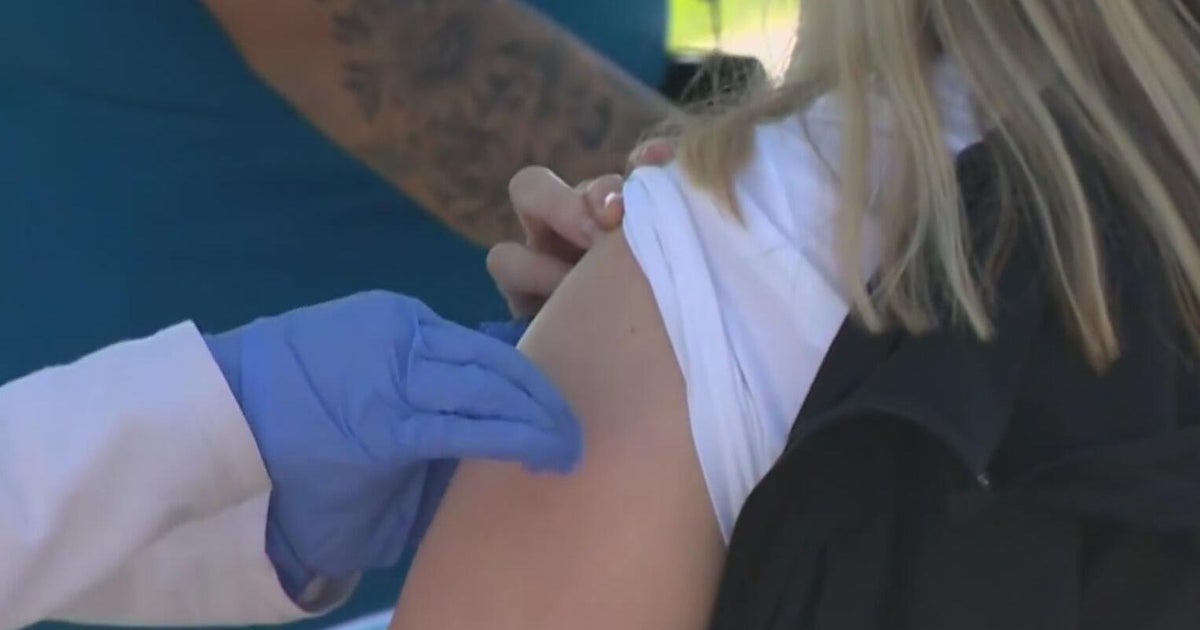Colorado Health Officials Urge Vaccination As Hospitals Brace For Omicron Variant
DENVER (CBS4) - Health officials in Colorado are following the new Omicron COVID-19 variant closely. While there are still a lot of unknowns about its potential impact, some experts believe the physical makeup of the strain indicates it could be more resistant to vaccines.
"There are concerns that, because of some of the mutations on the spike protein of the virus, it is possible that it might be more transmissible than other variants, or might be able to evade immune response," a spokesperson with the Colorado Department of Public Health and Environment wrote in an email Monday to CBS4.
Sequencing testing has already begun on samples of positive COVID-19 tests, but so far there is no known case of the variant in Colorado.
"In Colorado, the CDPHE Laboratory and some private laboratories conduct genetic sequencing on human samples that are positive for SARS-CoV-2 from around the state," the CDPHE spokesperson said. "This allows us to track the variants that are circulating in our state."
Epidemiology and Disease Intervention Program Manager for the Denver Department of Public Health and Environment Tori Burket told CBS4 that regular testing will help health officials to catch the variant quickly.
"The state is doing a ton of that sequencing, so as soon as they identify the Omicron variant in Colorado or in Denver, in this case, we would know pretty quickly," Burket said.
Burket said experts are still collecting data in South Africa - where the variant originated - to better understand its severity and transmissibility.
"There's a lot of anecdotal information coming out because it takes a couple of weeks for us to have enough data to make definitive decisions about: 'Is this more effective? Does it cause more severe disease? Are the vaccines less effective?' So those are all questions right now that we don't have solid answers to," Burket said. "But one of the things that we've heard from some doctors and other public health staff in South Africa is that the majority of the infections that are being reported are among people who are unvaccinated."
Amid concerns for the new variant, hospitals across Colorado are nearing capacity, according to the Colorado Hospital Association.
A spokesperson for the CHA says because we're back to doing more normal-life activities, there have been more trauma incidents - like car crashes - than last year. Hospitals are also seeing more cases of other viruses and infections aside from COVID-19, because people aren't wearing masks as frequently as last year.
In Fort Collins, one hospital has even received assistance from the Department of Defense, because its staff is so overwhelmed with COVID-19 patients. The hospital there says it currently can't provide all of its regular services, because it's inundated with patients in the ICU.
Colorado hospitals are also working with the state to expand access to monoclonal antibody treatments, the CHA says. The state is also working on expansion of vaccines and booster doses, according to the CHA.
"There's a number of things we've been working on that should be helpful if this new variant presents challenges," said Cara Welch with the CHA.
While more data is needed to better understand just how well vaccines will work against Omicron, Burket urges everyone to get vaccinated or boosted as soon as possible to help keep hospital capacity levels low.
"Stay strong. I know it's been almost two years of this happening and people hearing the same recommendations, but those recommendations have been the same for a reason, because we know that they work," Burket said. "So, I would just ask people to be patient, you know, care about your neighbors, if you can get vaccinated, get vaccinated."
There are more than 1,700 vaccine providers across the state.
Guidance for traveling safely during the COVID-19 pandemic can also be found on CDC's website.









